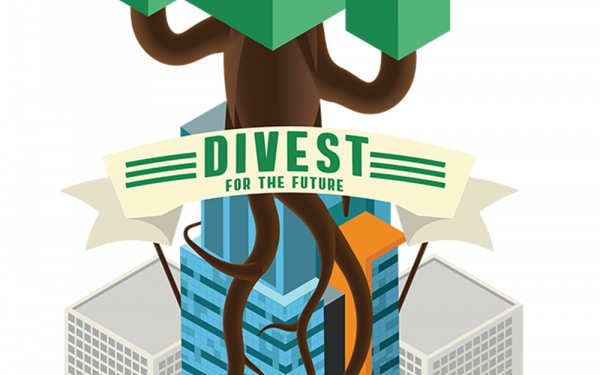So What Exactly Is Sustainability?
Sustainable Concordia Celebrates 15 Years
“Sustainability” as a term is both vague and loaded. Its connotations range from tree-hugging hippies to green-washing corporate systems, where carbon offsets are used to justify frequent plane trips and plastic plates.
The first major concern of those promoting sustainability is of the preconceptions surrounding this often very misunderstood concept. So, what is this fight actually about?
Mark Underwood is the current general coordinator at Sustainable Concordia, which celebrates its 15th anniversary this year and he disagrees with the frequent assumption that sustainability is strictly an environmental issue.
“Sustainability, to me, is a process of culture change,” he says. “It involves addressing all of the ways in which we live under a state of oppression.”
Underwood says that environmental oppression occurs in many ways.
“Using resources unsustainably so that future generations will be without, or we pollute the environment so it’s not a healthy place to live, or we create systems of oppression that tell people that they can’t love who they want to love, or they can’t practice a religion that they want to practice,” he explains. “We [also] create systems of economic oppression by creating competition and economic disparity between the poor and the rich.”
“From what I’ve heard, [the concept of] sustainability barely existed 15 years ago,” says Pauline Soumet, a fine arts graduate and Sustainable Concordia’s design and communications coordinator.
“Some students had the audacity to actually say that it was needed, and to put a structure in place, and that has really changed and evolved and has been taken on by plenty of generations of students, which is amazing,” says Soumet. “There is more and more involvement and more and more projects, but this all needs to be kept going and needs more support from the university.”
The number of compost bins on both campus has increased from 13 to 60 in the past two years, due to the student-led Waste Not Want Not campaign. Other sustainability success stories on campus include the repurposing of the rooftop greenhouse in 2006, ongoing support for cyclists, and the institution-wide sustainability policy that was approved in 2016.
The divestment campaign has also been ramping up its efforts across campus in the past few years with the goal of convincing the school to remove the approximately $12 million currently invested in the fossil fuel industry. The administration is unwilling to negotiate on students’ terms or take meaningful action beyond small financial changes that are purely symbolic, such as the creation of a $5 million Green Revolving Fund for campus groups devoted to sustainable projects (out of the almost $170 million currently in the school’s endowment fund). As in any major institution, change can be slow and feel confrontational.
And like most educational institutions, Concordia’s power for change comes primarily from the students. Universities have a unique position in the community as traditional and respected institutions that are tasked with shaping a new workforce and world. This means there are a lot of opportunities for research and pilot projects, but it’s a challenge to engage over-worked faculty and students.
The main take-away from conversations about sustainability is that we each have a lot more power than we think, but that power isn’t effective in isolation. These oppressive systems won’t change even if everyone rides their bikes in February and changes all their light bulbs or goes vegan. Change will come when students get together and use our collective energy, skills, and knowledge. We have the potential to start massive movements in and outside of institutional structures.
“I’ve been able to see students and administration work together to implement practices of sustainability,” says Underwood, looking thoughtfully over the rooftop garden into the long stretch of parking lot.
“When I first started on campus it was sort of engrained in me that the administration was automatically evil, and they didn’t want any of what we wanted to happen, and that it was always going to be a fierce battle… I’ve started to see that change and it’s not as black and white as I once saw it. While there are still areas where that needs improvement, I think the sustainability governance framework has allowed students to be more vocal about what we want on campus.”
Underwood adds, “Sustainability isn’t used so much as a buzzword anymore. There’s more of an understanding of what it actually means.”
_The writer of this article is affiliated with Sustainable Concordia. For more information about their organization, visit sustainableconcordia.ca. For more information about the Divest Concordia project, visit divestconcordia.org





_600_375_90_s_c1.jpg)
(WEB)_600_375_90_s_c1.jpg)